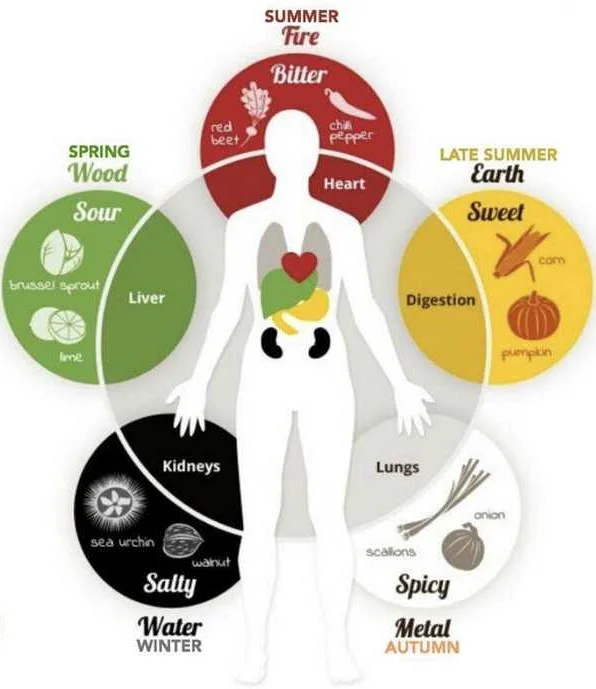Sour Taste in the Mouth in Adults: Causes, Symptoms, and Treatment
Find out more about the causes of a sour taste in the mouth in adults, including acid reflux, medications, and oral health issues. Learn how to treat and prevent this unpleasant symptom.
Experiencing a sour taste in the mouth can be an unpleasant and bothersome sensation for adults. It can significantly impact one’s enjoyment of food and even affect their overall quality of life. Understanding the causes behind this sour taste is crucial in finding an appropriate treatment.
One of the most common causes of a sour taste in the mouth is acid reflux or gastroesophageal reflux disease (GERD). This occurs when stomach acid flows back into the esophagus, causing irritation and a sour or bitter taste. GERD can be triggered by certain foods, obesity, pregnancy, and other factors.
In addition to GERD, certain medications can also contribute to a sour taste in the mouth. Some antibiotics, antihistamines, and blood pressure medications are known to cause this side effect. It is essential to discuss any medication-related symptoms with a healthcare professional to determine if an alternative medication can be prescribed.
Other potential causes of a sour taste in the mouth include dental issues, such as gum disease or tooth decay, sinus infections, and dry mouth. Poor oral hygiene can also lead to an accumulation of bacteria, causing a sour taste. Identifying the underlying cause is crucial in developing an effective treatment plan.
Treatment for a sour taste in the mouth will depend on the underlying cause. For acid reflux and GERD, lifestyle modifications such as avoiding trigger foods, losing weight if needed, and elevating the head while sleeping can help alleviate symptoms. Over-the-counter antacids may also provide temporary relief.
Addressing dental problems, such as gum disease or tooth decay, may involve professional dental treatment, such as scaling and root planing or fillings. Maintaining good oral hygiene practices, including regular brushing and flossing, is essential in preventing the buildup of bacteria that can cause a sour taste.
If the sour taste is a result of medication, consulting with a healthcare professional is crucial. They may be able to prescribe an alternative medication or adjust the dosage to alleviate the side effects. In cases where a sinus infection or dry mouth is the cause, appropriate medical treatment and staying hydrated can help improve symptoms.
In conclusion, a sour taste in the mouth can have various causes in adults. Identifying the underlying cause is essential in finding appropriate treatment and alleviating symptoms. Consulting with a healthcare professional is recommended for a proper diagnosis and personalized treatment plan.
What causes sour taste in the mouth?
A sour taste in the mouth can be caused by a variety of factors, including:
| Poor oral hygiene: If you don’t brush and floss your teeth regularly, bacteria can build up in your mouth, leading to an unpleasant sour taste. |
| Acid reflux: When stomach acid flows back into the esophagus, it can cause a sour or bitter taste in the mouth. This is known as acid reflux or gastroesophageal reflux disease (GERD). |
| Dietary factors: Eating certain foods, such as citrus fruits, vinegar, or fermented foods, can cause a sour taste in the mouth. |
| Medications: Some medications, including antibiotics, can cause a sour taste as a side effect. |
| Dehydration: When you’re dehydrated, your body may produce less saliva, which can result in a dry mouth and a sour taste. |
| Medical conditions: Certain medical conditions, such as sinus infections, respiratory infections, and hormonal imbalances, can cause a sour taste in the mouth. |
If you’re experiencing a persistent sour taste in your mouth, it’s important to speak with a healthcare professional to determine the underlying cause and receive appropriate treatment.
Common causes of sour taste in the mouth

Experiencing a sour taste in the mouth can be unpleasant and may be a sign of an underlying health issue. Here are some of the common causes of a sour taste in the mouth in adults:
1. Acid reflux: Acid reflux occurs when the stomach acid flows back into the esophagus, causing a sour or bitter taste in the mouth. This condition is also known as gastroesophageal reflux disease (GERD) and can be accompanied by heartburn, chest pain, and difficulty swallowing.
2. Poor oral hygiene: Neglecting proper oral hygiene can lead to the buildup of bacteria and food particles, contributing to a sour taste in the mouth. Brushing and flossing regularly, as well as using mouthwash, can help maintain oral health and prevent this unpleasant taste.
3. Dry mouth: Saliva plays a vital role in maintaining oral health and neutralizing acids in the mouth. When there is a lack of saliva production, often caused by medications, certain medical conditions, or mouth breathing, it can lead to a sour taste. Drinking plenty of water and avoiding certain medications that cause dry mouth can help alleviate this symptom.
4. Diet: Consuming certain foods and beverages that are acidic or high in sulfur can leave a sour taste in the mouth. Citrus fruits, tomatoes, coffee, alcohol, and spicy foods are common culprits. Maintaining a balanced diet and reducing the intake of these foods can help improve the taste in the mouth.
5. Sinus infections and allergies: Sinus infections and allergies can cause postnasal drip, where mucus drains down the throat. This can result in a sour taste in the mouth. Treating the underlying sinus condition and managing allergies can help alleviate this symptom.
If you frequently experience a sour taste in your mouth, it is important to consult a healthcare professional to determine the underlying cause and receive appropriate treatment.
Medical conditions associated with sour taste in the mouth

While a sour taste in the mouth can be caused by a variety of factors, it can also be a symptom of certain medical conditions. If you frequently experience a sour taste in your mouth, it is important to consult with a healthcare professional to determine the underlying cause. Here are some medical conditions that may be associated with a sour taste in the mouth:
Gastroesophageal reflux disease (GERD):
GERD is a condition in which stomach acid flows back into the esophagus, causing irritation and a sour taste in the mouth. Other symptoms of GERD may include heartburn, chest pain, and difficulty swallowing.
Gastritis:
Gastritis is inflammation of the stomach lining, which can be caused by a bacterial infection, long-term use of nonsteroidal anti-inflammatory drugs (NSAIDs), or excessive alcohol consumption. In addition to a sour taste in the mouth, gastritis may cause abdominal pain, nausea, and vomiting.
Dry mouth:
Dry mouth, also known as xerostomia, occurs when the salivary glands do not produce enough saliva. This can lead to a sour or metallic taste in the mouth. Dry mouth can be caused by certain medications, medical conditions like Sjögren’s syndrome, or simply dehydration.
Oral infections:
Infections in the oral cavity, such as oral thrush or periodontal disease, can cause a sour taste in the mouth. These infections can be caused by an overgrowth of fungi or bacteria, poor oral hygiene, or a weakened immune system.
Sinusitis:
Sinusitis is inflammation of the sinuses, which can cause a variety of symptoms including a sour taste in the mouth. Other symptoms of sinusitis may include facial pain or pressure, nasal congestion, and postnasal drip.
Other systemic conditions:
There are other medical conditions that can cause a sour taste in the mouth as a secondary symptom. These may include diabetes, liver disease, kidney disease, and certain autoimmune disorders. If you have any of these conditions, it is important to manage them properly to alleviate the symptoms.
If you are experiencing a persistent sour taste in your mouth, it is important to seek medical advice to determine the underlying cause. While it could be a temporary and harmless issue, it could also be a symptom of a more serious medical condition that requires treatment.
Lifestyle factors that can contribute to sour taste in the mouth

Having a sour taste in the mouth can be caused by various lifestyle factors. These factors can include:
- Poor oral hygiene: Not maintaining proper oral hygiene can lead to an overgrowth of bacteria in the mouth, which can cause a sour taste.
- Smoking: Smoking tobacco products can not only lead to bad breath, but it can also contribute to a sour taste in the mouth.
- Alcohol consumption: Excessive alcohol consumption can alter the normal pH balance in the mouth, resulting in a sour taste.
- Poor diet: Consuming a diet high in acidic foods, such as citrus fruits and sugary snacks, can contribute to an acidic taste in the mouth.
- Dehydration: Not drinking enough water can lead to dry mouth, which can cause a sour taste.
- Stress: Chronic stress can lead to an increase in stomach acid production, which can result in a sour or bitter taste in the mouth.
- Medications: Certain medications, such as antibiotics or antihistamines, can cause dry mouth or alter the taste buds, leading to a sour taste.
- Medical conditions: Conditions such as acid reflux, gastroesophageal reflux disease (GERD), or liver problems can cause a sour taste in the mouth.
It is important to address these lifestyle factors in order to alleviate or prevent the occurrence of a sour taste in the mouth. Maintaining good oral hygiene, quitting smoking, moderating alcohol consumption, eating a balanced diet, staying hydrated, managing stress levels, and discussing medication side effects with a healthcare professional are all steps that can be taken to help alleviate a sour taste in the mouth.